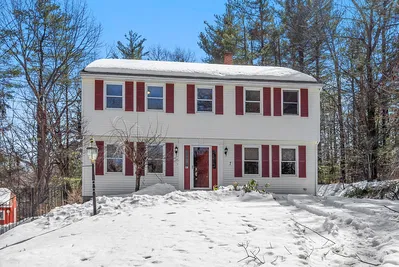
We are in an odd housing market right now. Interest rates are up significantly, which increases a potential buyer’s monthly payment, which in turn limits how much banks will lend a buyer, which then limits the price ranges that people looking to buy a house can afford to shop in. You would think that this trend would result in lower home prices, but that’s not what’s happening. Instead, home prices are continuing to rise.
The reason for home prices continuing upward is the scarcity of homes for sale. A big reason for this scarcity is that many homeowners have mortgages with very low interest rates, and they don’t want to move and give up those rates, paying a higher rate on a new house. Redfin (a real estate company) put out data that one third (32%) of homeowners have mortgage interest rates under 4%, which is accurate but misleading, as their data includes households with no mortgages (a 0% mortgage). But regardless of how many people actually have mortgages below 4%, it’s impacting the supply of homes for sale. Estimates (from Redfin) are that nationwide homes for sale are down from 1.8 million units in August 2022 to 1.3 million in February 2023.
This general situation of having more buyers than sellers has been around for a while now: People list their homes for sale either because they must sell (job relocation, divorce, etc.) or because they want to sell (move to Florida for retirement, want a bigger home for the kids or a smaller home because the kids are grown, etc.). If you must sell, interest rates won’t influence you much (there are more buyers than homes right now). However, if you just want to sell, they have a stronger effect, because basically, you have to live somewhere, and unless you are a cash buyer, you’ll have to buy your new home at the higher interest rates. In this case it really depends upon how much you want to move, and do you have somewhere to go next.
For buyers, the logic is more straightforward. Owning a home is virtually always better than paying rent. Homes have been going up in price annually like clockwork for years (called the 4% rule). Even people who bought in the 1980s, when interest rates were outrageously high (18%), mostly made out fine. Their strategy was simple: Refinance: Buy at whatever rate is available, and when the rates go down enough, refinance. That’s what we personally did, because even if rates don’t go down for a while, at least you’re not renting (that money is 100% gone) and your home is appreciating. If rates actually continue to go up, You’ll be happy you’ve got the lower rate.
Of course, in the 1980s, things got out of hand….people had offers on houses that depended on someone else selling their house, which again depended on some other house closing. These chains of dependencies were sometimes up to six transactions deep. Plus there were ‘balloon payments’, which were really risky–people kept their payments down by only paying the mortgage on a portion of the amount due, with a whopping payment due at some point in the future. The idea was that they could refinance the whole thing when rates went down.
Compared to this type of market, we are in a very normal market. Even the rates aren’t historically high–30 Year Mortgage Rates in the US averaged 7.75% from 1971 thru 2023. They’re just high compared to what people got during the pandemic, but that was probably a once in a lifetime situation…..and most importantly, that ship has sailed, at least for now.
Sometimes though, if the rates are high enough, your monthly payment could exceed what you can comfortably pay, to get the home you want. In that case an ARM (adjustable rate mortgage) ‘might’ be an answer. Your bank’s loan officer would have the details on these, but the general concept is that the initial rate is lower, but the rate will adjust in some set period of time, if interest rates rise (or maybe stay the same). This one is a bit more of a gamble, because if rates rise, the cost of getting into a fixed rate mortgage will also rise, and there could be limits on refinancing. The trick to these, again, is to refinance when the time is right. Make sure you are aware of terms in these type loans–when can rates change, when can you refinance, etc.
An odd but remarkably creative approach we’ve heard about is that people who must or really want to move, but don’t want to cash out of their 2-3% mortgage, sometimes rent their homes instead of selling them. Rents are as usual going up (in our area and the East in particular), and these people who are considering being new landlords, have fixed, low monthly costs for their soon to be rental house. Of course not everyone wants to be a landlord, and we’ve all heard plenty of horror stories about renters, but if you’re careful, and maybe use a service to handle all aspects of being a landlord, it’s possible you’ll make a substantial profit each month on your prior home (which will probably appreciate as well), which will then offset a large chunk of your monthly payments on the new home..
What this means on a practical level is that if you are in a position to sell your home, it’s a good time to do so. There are currently more qualified buyers than homes listed for sale. Homes are often still selling above listing price.
On the other hand, if you are a buyer looking for a home, it’s not the ideal time to be looking to get a great bargain, but nevertheless it’s far better now than it was during the pandemic (sometimes 70-80 sets of potential buyers would come through an open house). Just make sure you have a good agent to help you. *We can help with that! It doesn’t cost a buyer to have a buyer agent representing them, since we’re simply paid a portion of what the seller has already in contract to pay their listing agent.
How to find a good agent? Here’s a quick primer on real estate agents:
First off, when you are looking on Zillow or Realtor.com, there is always a button to click that says something like “talk to an agent now”. If you click on that button you will quickly get a call from a ‘buyer agent’ who buys leads from these companies. You usually won’t get the agent listing the home, nor will you necessarily get a great agent for you….you simply get one who is buying the leads….that’s one way these companies make money. However, you certainly could get a good agent, and in fact reputable, successful agents do buy leads from these companies. However the agent will most likely have no relation to the house you are interested in (although occasionally agents do buy leads on their own listings, but there’s no way to know that when you click the button).
Another thing to keep in mind is that a ‘buyer agent’ solely represents you, the buyer, and a listing or selling agent only represents the seller of the home. This is why you need a good agent to represent you, regardless of whether you are buying or selling. There’s no money to be saved by not having an agent on both sides of the transaction, because the commission is the commission….if you try to manage your own buying situation, and don’t have a buyer agent, the listing agent simply collects the full commission for both sides. This is called ‘dual agency’ and it has to be disclosed, or some listing agents will put a buyer’s offer together to present the seller, but the buyer has no representation at all. You’re not doing yourself any favors trying to go it alone. It’s essential to be working with a buyer agent so as to be armed with strategies to get your offer accepted in this competitive real estate market.
The best way to find an agent is recommendations from friends, agents you know are active in your area, and in particular, reading reviews of the agents online. A lot of good reviews tell you a lot about that agent. Read my Client Reviews here!
A few facts on the economy from reputable sources:
–Interest rates are coming down (a tiny bit). The current interest rate for a 30 year fixed is 6.35%. (4/5/23 midweek rate sheet of a mortgage company).
–New job creation has slowed. ADP reported 142,000 job creations in March. This missed the expected 210,000 new job creations. Economically this is a good thing because it may decrease inflation pressures. It’s obviously a bad sign if you are looking for work. Most of the jobs created were in the hospitality sector. (ADP)
–Housing prices are falling in the west, but booming in the east. Home prices in San Jose and San Francisco, California were down more than 10% from a year last January, while in Seattle prices fell 7.5%. In the East prices are up considerably. (The Wall Street Journal)
And, here’s a small plug for The Wall Street Journal, which I personally consider the best newspaper in the country. They are now offering a $1 a week yearly subscription to their online version, and better yet, you actually get a free physical, paper copy of their weekend edition delivered to your home. It feels strange, and somewhat comforting to get an actual newspaper in the driveway.



